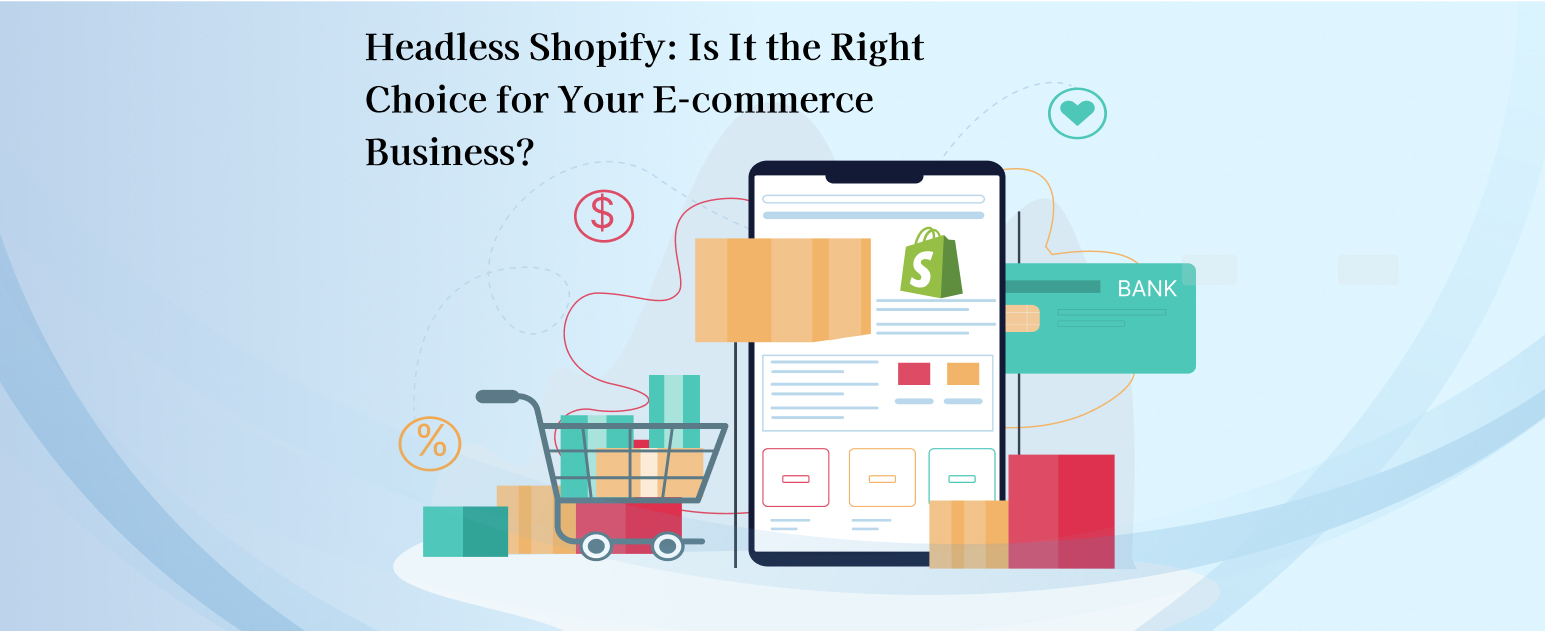If one has to thrive, capturing and converting leads is crucial for business growth. Headless Shopify offers an innovative approach to achieve this goal by decoupling the front-end and back-end of your store.
But what exactly is headless commerce, and why should you consider it for your Shopify store? We will answer all your queries in the detailed guide by our Shopify development company. We will also explore about headless Shopify, its benefits, drawbacks, and how it could transform your online business.
Let’s Understand the Headless Shopify Architecture
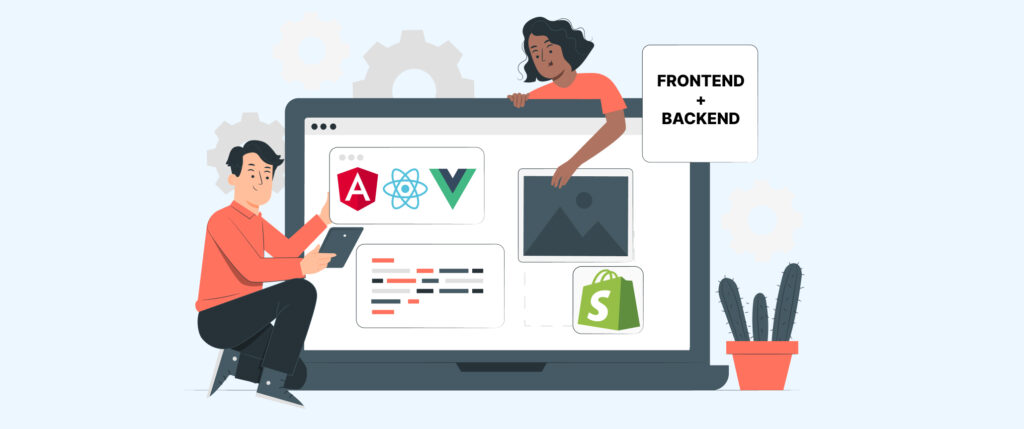
Alright, let’s get a bit techie for a moment. Imagine Shopify as a multitasking wizard, juggling all the e-commerce stuff like product listings, payments, and inventory. However, in a headless setup, we tell this wizard, “Hey, you just focus on the backend magic, we’ll handle the frontend.” This separation allows you to craft a custom storefront using your favorite technologies while Shopify handles the backend operations. Pretty cool, right?
Why Go Headless?
- Freedom of Choice: Choose basically any frontend framework you love—React, Vue.js, Angular—whatever floats your boat.
- API-Driven: Communicate seamlessly between the frontend and backend using APIs, ensuring smooth data flow.
- Back-end Reliability: Continue using Shopify’s robust backend for inventory management, order processing, and more.
How Can Headless Shopify Benefit You?
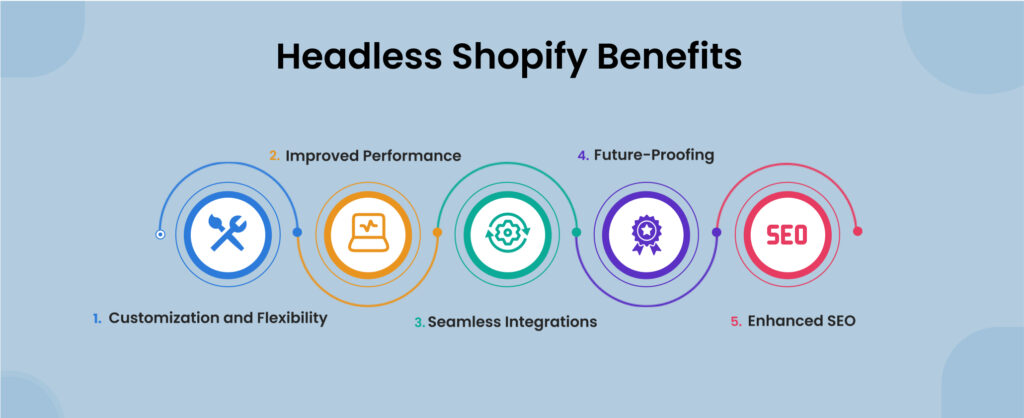
1. Customization and Flexibility: Headless Shopify allows a lot of customization. You’re no longer restricted by Shopify’s themes and templates. Instead, you can create a completely unique user experience.
2. Improved Performance: Decoupling the front end from the back end can significantly enhance your website’s performance. Hence, faster load times and a smoother user experience can lead to higher conversion rates.
3. Seamless Integrations: Easily integrate with third-party applications and services. Whether it’s a custom CMS, CRM, or marketing automation tool, headless architecture makes it easier to connect with various systems.
4. Future-Proofing: As technology evolves, you can basically update your front-end technology without overhauling your entire system. This makes your e-commerce site more adaptable to future changes. Further, if you choose to select Reactjs we’ve got just the material for you!
5. Enhanced SEO: With greater control over your front-end, you can optimize your site more effectively for search engines. Therefore, better SEO practices lead to improved visibility and higher traffic.
What are the Challenges you need to consider?
No journey is without its obstacles. Hence, here are some challenges you might face. Let’s have a look at how you can prepare for them.
1. Complexity and Cost: Implementing a headless architecture can be complex and costly. So, you’ll likely need to hire Shopify experts or a Shopify web development company to handle this transition.
2. Development Time: Developing a custom front end can take significantly more time compared to using Shopify’s pre-built themes.
3. Maintenance: Maintaining a headless setup requires ongoing effort. You’ll need to ensure that both the front-end and back-end systems are updated and functioning smoothly.
4. Limited Plugins: Some Shopify plugins may not be compatible with a headless setup, so there’s a limited availability of features and functionalities.
Is Headless Shopify Right for You?
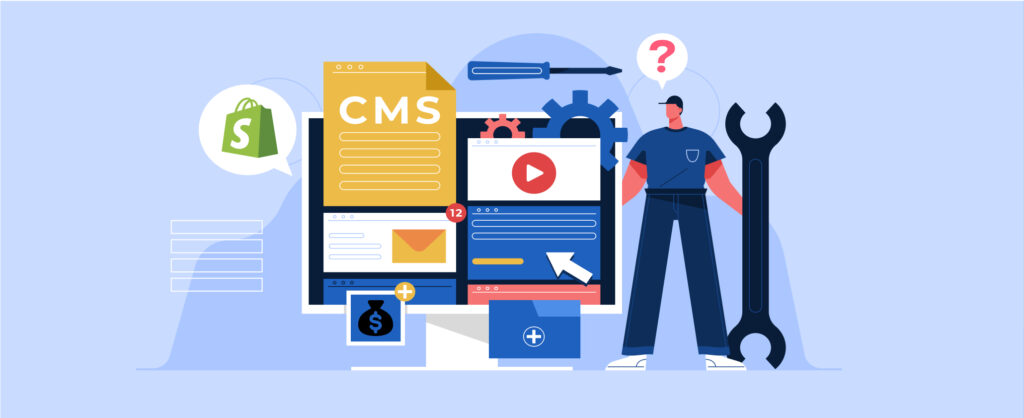
Deciding whether to switch to a headless Shopify setup depends on various factors, including your business goals, resources, and technical capabilities. Therefore, here are some questions to consider:
- Do you need a highly customized user experience that can’t be achieved with Shopify’s standard themes?
- Are you prepared to invest in the development and maintenance of a headless system?
- Does your team have the technical expertise to manage a decoupled architecture, or will you need to hire Shopify developers?
Well, if it helps any further. We’ve got the following case study for you that might give you some insights on headless Shopify store creation!
How to Implement Headless Shopify?
If you’ve decided that this is the right choice for your business, following is a step-by-step guide to getting started:
1. Define Your Goals
Determine what you want to achieve with a headless setup. Are you looking for better performance, more customization, or improved SEO?
2. Choose Your Front-End Technology
Select the front-end technology that best suits your needs. We have got just the blog for you that might help you choose the correct tech for your next headless setup
3. Hiring the Right Team
Consider hiring Shopify app development services or a Shopify web development company with experience in headless architecture.
4. Developing the Front End
Work with your development team in order to create a custom front end that aligns with your goals and brand identity.
5. Integrating with Shopify
Ensure seamless integration between your custom front end and Shopify’s backend. This also includes setting up APIs for data exchange.
6. Test Thoroughly
Before going live, conduct extensive testing to ensure everything works smoothly. This also includes performance testing, security checks, and user experience testing.
7. Launch and Monitor Your Headless Shopify Store
Once everything is set, launch your headless Shopify store. Further, monitor its performance and make necessary adjustments.
Cost Considerations You Need to Keep in Mind
Implementing a headless approach can basically be a significant investment. Following are some cost factors to keep in mind:
Development Costs
— Hiring Shopify app developers or a Shopify web development company
— Developing a custom front end
Maintenance Costs
— Ongoing updates and maintenance
— Possible need for additional support staff
Integration Costs
— Connecting third-party applications and services
— Ensuring compatibility with existing systems
While the initial costs can be high, the long-term benefits of improved performance, customization, and future-proofing may outweigh these expenses.
What’s the Future with Headless Shopify?
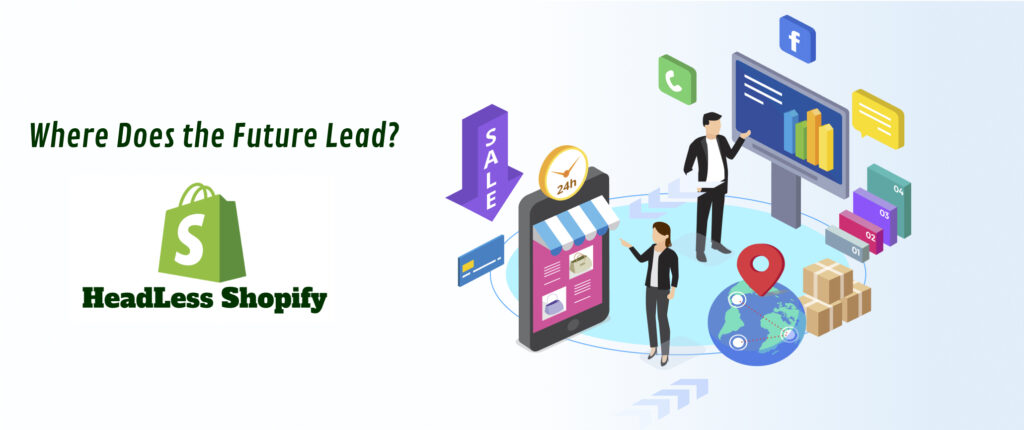
The world of e-commerce is ever evolving, and headless commerce is no exception. Here’s what you can expect in the future
- AI Integration: Expect more AI-driven personalization and automation in headless setups.
- Omnichannel Experiences: A headless architecture makes it easier to provide a seamless experience across multiple channels, from mobile apps to smart devices.
- Adaptability: Be further ready to adapt and innovate as new tools and techniques emerge.
Frequently Answered Questions
Headless Shopify is a setup where the front end (user interface) is decoupled from the back end (Shopify’s e-commerce platform), allowing for greater customization and flexibility.
Consider headless Shopify for its benefits such as improved performance, enhanced SEO, and the ability to create a unique user experience.
Costs include development, maintenance, and integration. You’ll likely need to hire Shopify experts or contact a Shopify development company for further details.
Yes, you can choose from various front-end technologies such as React, Vue.js, and Angular, depending on your needs and preferences.
Headless Shopify can be beneficial for businesses of all sizes, but the complexity and cost may be more suitable for larger businesses with more resources.
Our Final Words
Switching to Headless Shopify is a strategic move that can offer unparalleled customization, improved performance, and futureproofing for your e-commerce store. However, it requires careful planning, the right team, and a clear understanding of the costs and benefits. Along with the expertise of Shopify app development services and staying informed about industry trends, you can make a successful transition to headless commerce and stay ahead in the competitive e-commerce landscape.
Ready to take a step forward? Whether you’re considering to hire Shopify experts or exploring Shopify app development services, the journey to headless Shopify can transform your business.
Stay Tuned for Latest Updates
Fill out the form to subscribe to our newsletter
